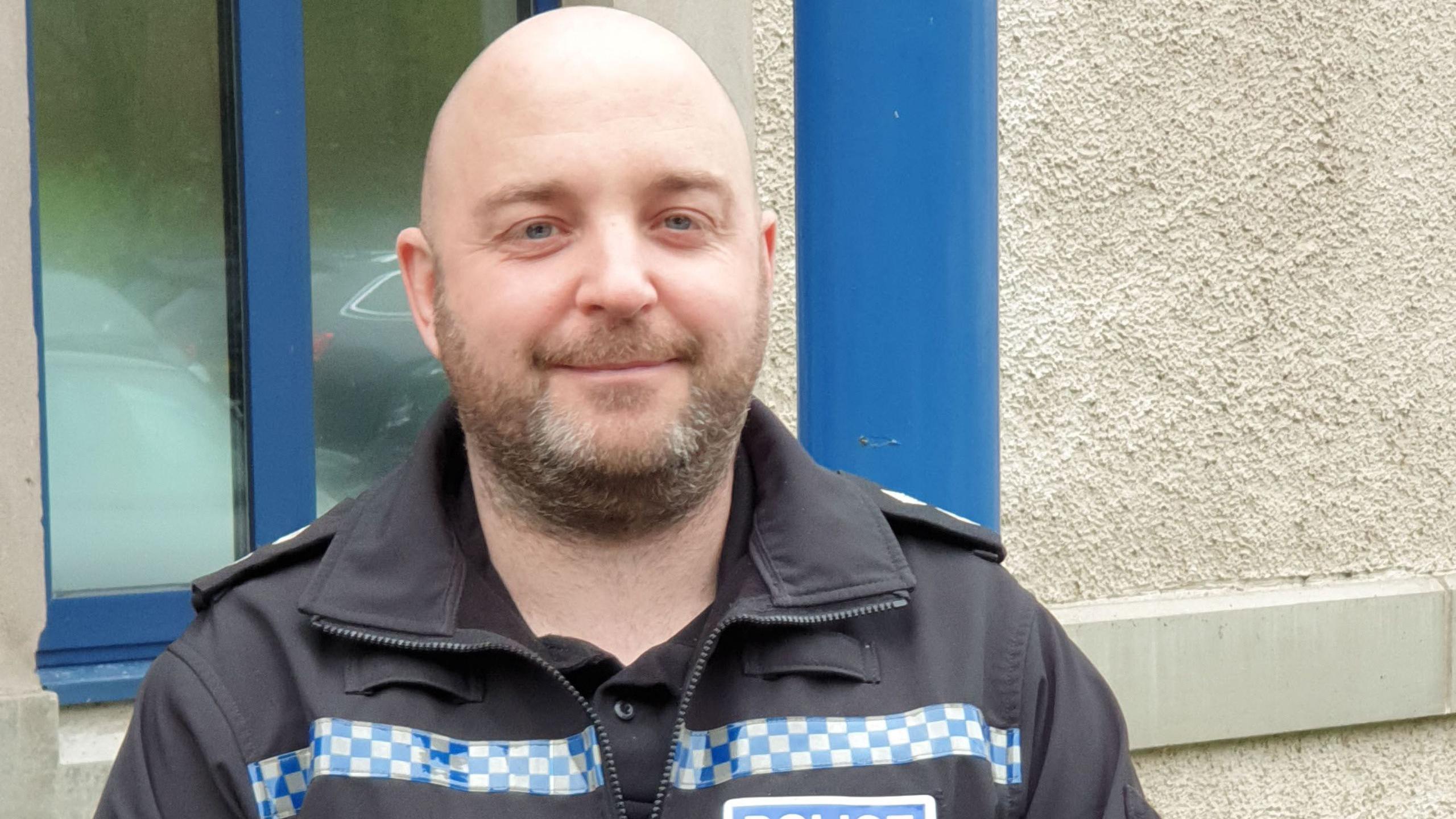ADHD scheme a 'lightbulb moment' for offenders

Insp Peter Aiston has been leading a scheme to detect ADHD in offenders
- Published
A police scheme to screen people in custody for signs of Attention Deficit Hyperactivity Disorder (ADHD) has provided a "lightbulb moment" for offenders, the officer leading it has said.
Cumbria Police rolled out the project to help understand the link between crime and the condition, with an aim to prevent reoffending.
Insp Peter Aiston, one of the volunteers who led the initial pilot, said it provided an opportunity for those who took part to reflect back on their experience of life.
"It's almost that lightbulb moment for them where they realise that there is a condition that they could get help for that might help them moving forward," he said.
Those screened are told if they are likely to have ADHD and, if so, are offered resources to find out more about the condition and pursue a diagnosis.
"It's like a bit of hope for them as well to try and steer away from being involved in criminal offences," Insp Aiston said.
Sarah Templeton, CEO of charity ADHD Liberty, said there was a clear link between the condition and offending.
She said prisons were full of people with ADHD, "a lot of it undiagnosed and a lot of it unknown".

Sarah Templeton said uncontrolled "natural ADHD traits" can easily lead to offending
Ms Templeton, who has ADHD, has worked in four prisons and more widely around offending, addiction and homelessness for 30 years.
She explained many people end up in the justice system because of their "natural ADHD traits".
"When I say natural, I mean things like being impulsive, not thinking of the consequences, having very low boredom thresholds, wanting everything immediately and having no patience," she said.
Ms Templeton said without medication or coping mechanisms in place to manage the propensity to risk-taking and pushing boundaries, many ended up in the justice system early in life.
Addiction issues
Insp Aiston said some of those taking part in the ADHD screening said they had struggled at school or in holding down jobs.
Although those screened were being brought in for wide ranging types of offences, addiction was also a common thread in their lives.
"More than half indicated they had some sort of addiction issue," Insp Aiston said.
"This could be something like alcoholism, drug addiction, addiction to gambling,"
Ms Templeton said it was a way for people with ADHD to "self-medicate".
"That addiction issue very often is what's got them into trouble with the police," she added.
She said screening people early on for potential signs of ADHD, for instance at key stages in school, could be key.
"It's not only transformative for people who are committing crimes, it's transformative for the whole of society because less people committing crime means less victims."
The initial pilot in Cumbria started last November at Workington police station and was rolled out to the other stations with custody suites - Carlisle, Kendal and Barrow - in September.
Cumbria was just the second force in the country to introduce the pilot, following on from City of London Police.
Although the numbers are small, early signs are positive, Insp Aiston said.
"We've screened 56 people in total since the project was implemented and when we combine those that indicate either highly likely or possible, ADHD is [indicated in] 80% of people."
The scheme will be monitored to identify patterns and the impact of the project on reoffending rates.
"Hopefully, for those people who come into custody now, we can reduce the amount of times that they they reoffend," Insp Aiston said.
"Not everyone needs [ADHD] medication, but it does help some people and it just gives them a bit of confidence to move on with life."
Follow BBC Cumbria on X, external, Facebook, external, Nextdoor and Instagram, external.
Get in touch
Do you have a story suggestion for BBC Cumbria?
- Published22 December 2024
